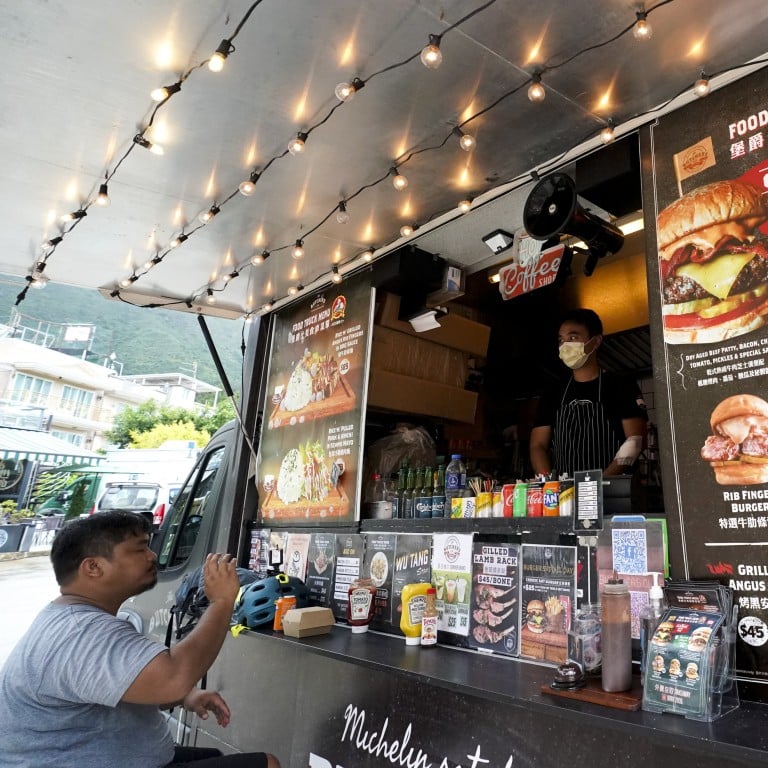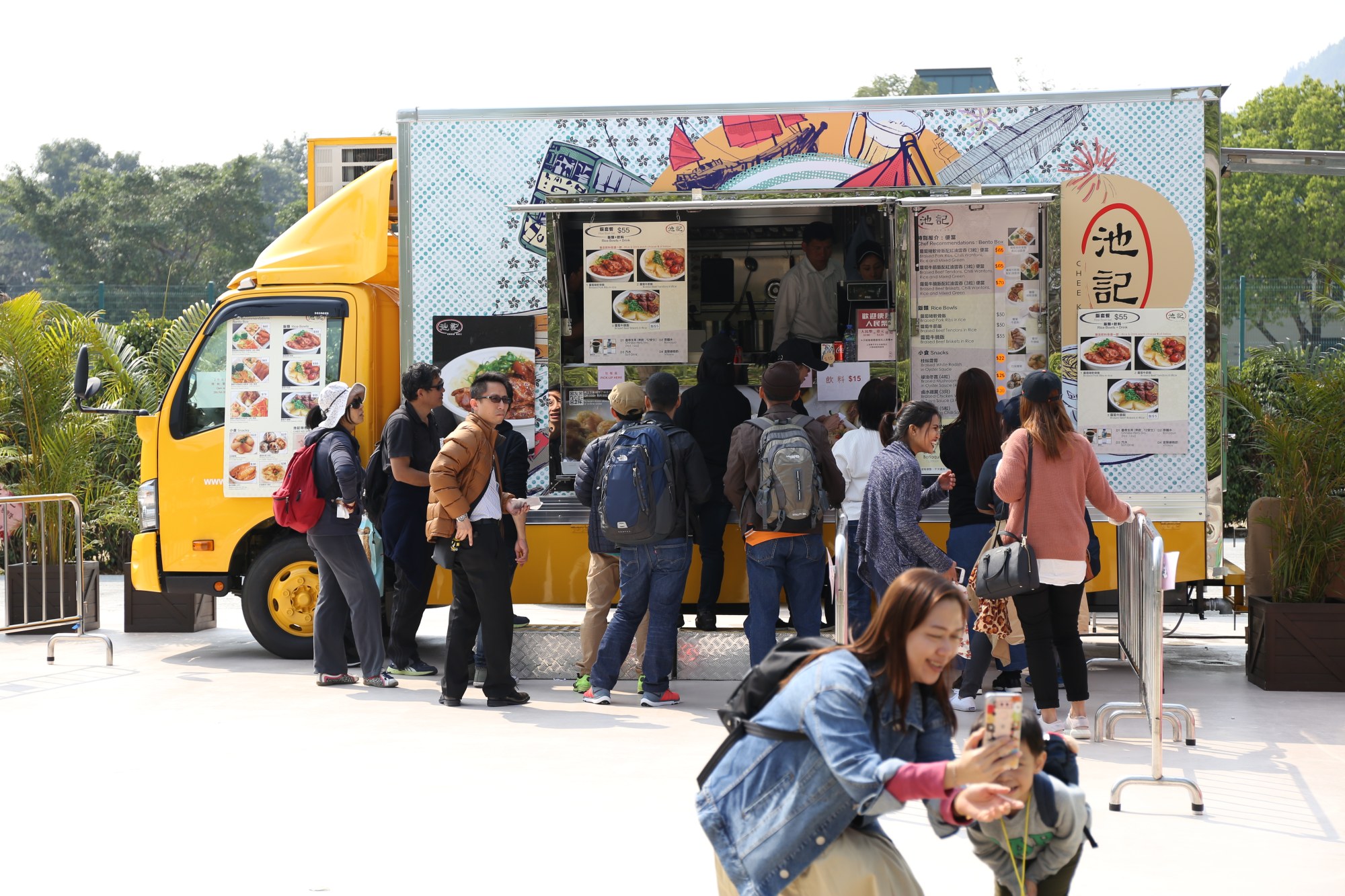
Hong Kong food truck scheme to be axed as social unrest and coronavirus pandemic hammer tourism
- Scheme launched back in 2017 started strong but food vendors were cut off from tourists by social unrest, Covid-19 pandemic
- 12 operators still doing business but only three have managed to build up brisk trade, government review finds
Hong Kong’s ailing food truck pilot scheme, originally designed to cater for tourists, has finally been axed by the government.
The Tourism Commission said the scheme would end on June 1, 2022, after a “comprehensive evaluation”. Most operators have lost money since its inception, but at least one is determined to continue if the government allows it to.
“The business development of food trucks serving as a tourism promotion facility was not satisfactory,” the commission said in a statement on Thursday. “Its development has not been able to achieve the policy objective of tourism promotion.”
Some 15 operators underpinned the five-year pilot scheme, but 12 survived, of which six were operating regularly, and of them, only three managed to generate brisk business, it added.

Branded as an unprecedented project to boost Hong Kong’s tourism image, the food truck scheme was the brainchild of then financial secretary John Tsang Chun-wah, who first raised the idea in his 2015 budget speech.
The scheme kicked off with great fanfare in 2017, after a competition was organised to select vendors on wheels to add some buzz to the city’s street food scene. After a promising start, complaints started pouring in from operators about poor, fixed locations and other rules they said had hurt their business.
Don’t scrap Hong Kong food truck scheme, operators say
The only two locations still regularly used are Hong Kong Disneyland and West Kowloon Cultural District Art Park.
Food hawkers in Hong Kong: how a city lost its street culture
Sai Cheung, 37, who runs the Book Brothers food truck, sells Chinese-inspired fusion BBQ meat served in flat, steamed bread outside Hong Kong Disneyland six days a week. He said that the decision by the authorities to halt the scheme came abruptly, as his business had reached its peak this year since the food truck project started.
Cheung, who invested close to HK$2 million (US$256,400) in the business, said that he was starting to gain regular customers from the Disneyland crowd this year as more locals had visited the theme park after the pandemic stabilised.
“When I first signed up in 2017 I didn’t know that the project would only last for five years. If the government allows, I actually want to continue doing this,” Cheung said. “After all, I invested a lot in this business.”


